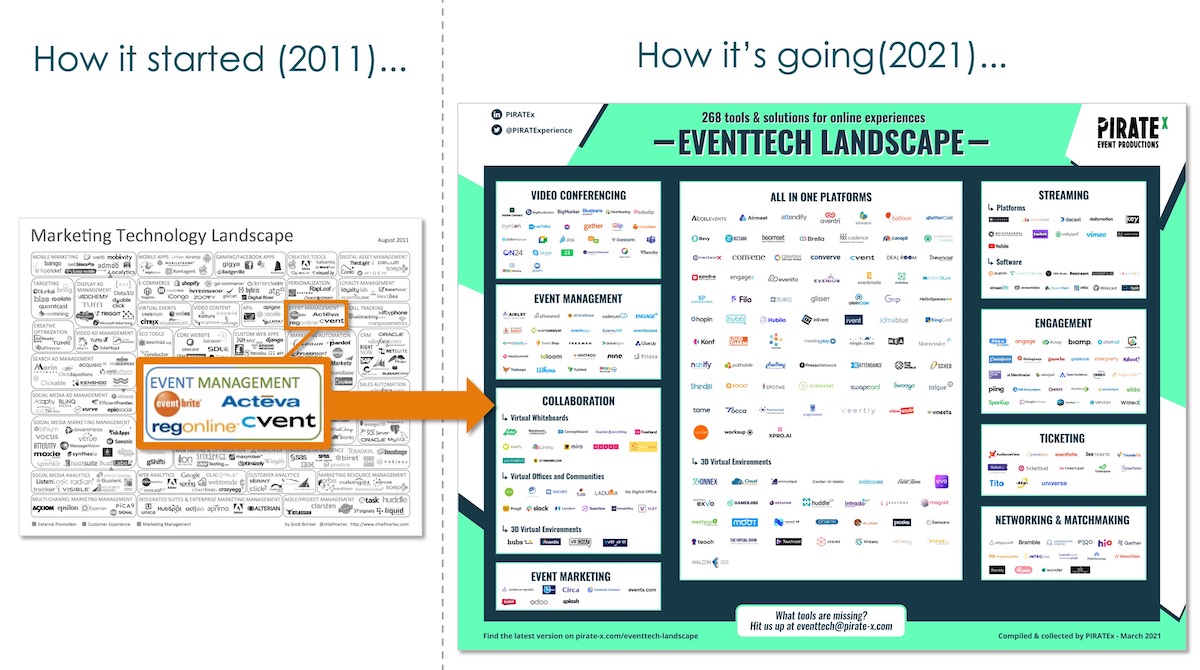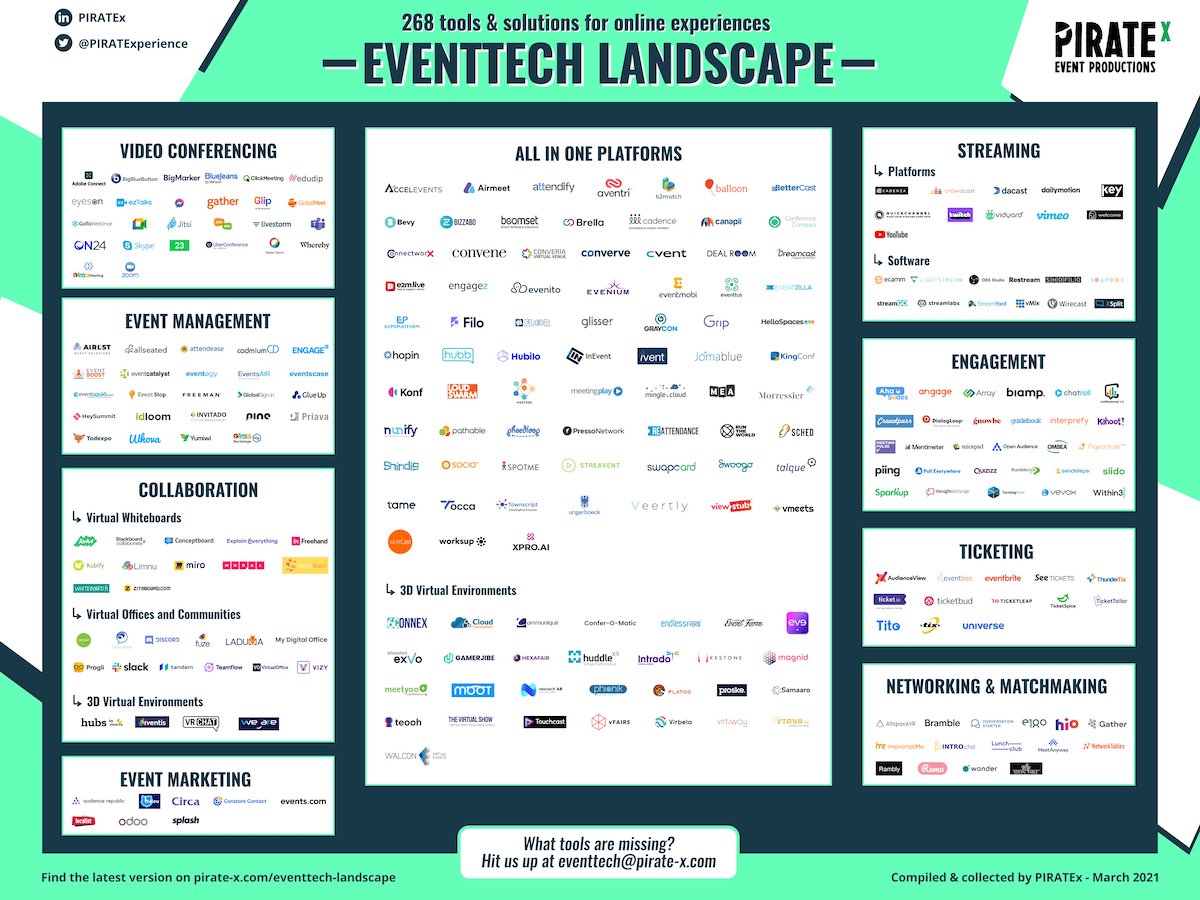I still remember fondly my young and innocent days a decade ago when I created the first marketing technology landscape. It categorized ~150 martech solutions — which at the time seemed epic in scale. “This must consolidate!” Ah, such innocence to the future of cloud dynamics.
Last year, the martech landscape was up to 8,000 solutions. 5,233% growth within 10 years’ time.
And martech is just a tiny slice of The Great App Explosion happening around us.
Frankly, at this scale, the martech landscape has become so large and dense that it’s impossible to see the trees for the forest. (Yes, that’s an intentional inversion of that expression. The one thing the martech landscape does communicate effectively is that the forest is… vast. Martech Mirkwood, if you will.)
These days, I find it’s much more interesting to look closer at individual categories. So I was very excited to see PIRATEx, a groovy event production company, assemble a landscape of eventtech tools:
The above graphic (click for a higher resolution) organizes 268 different tools for online event experiences, in 9-14 different subcategories, such as streaming, ticketing, networking, event marketing, and “all-in-one” platforms, including those with 3D virtual environments.
Funny thing about that graphic. Two weeks earlier, they’d published a version with 212 tools. Then, of course, a bunch of folks jumped out to point out the ones they’d missed. So they published an update with 268.
They also launched an Airtable-powered Eventtech Tools Directory to more easily maintain their list with updates and additions. I just visited it, and they’re now up to — wait for it — 316 tools, just a few weeks later.
By the time you read this, it’s probably grown even more.
The growth in this eventtech category is a perfect microcosm of the broader martech industry. A disruption happened — in this case, the past Year Without Pants of everyone working remotely and in-person events completely shut down — that opened up new opportunities for marketers to reinvent the way they engage with their audiences.
At the same time, cloud platforms and service platforms (refer to this article on platform dynamics for definitions) continued to launch new building blocks for developers to quickly leverage advanced capabilities in their own creations — standing on the shoulders of giants. Take a look at Mux for video, for instance.
The final ingredient in this martech alchemy is funding. Just a tremendous amount of money continues to pour into software ventures, as investors seek to capitlize on the shift of revenue into ever more digitally native channels, experiences, and operations.
The poster child: Hopin, which recently raised $400 million at a $5.65 billion valuation.
Hopin was just founded in June 2019, less than two years ago.
Will there be consolidation in this space? Of course. Who knows how many of these companies will be around in 5 years. But even if it consolidates in half — which would be truly massive consolidation — we’d be down to 158 companies. And that’s assuming that no new companies enter the space in that time frame.
The probability of that, absent a huge meteor collision with Earth, is zero.
But as disorienting as this continuous flood of new martech companies can be — believe me, as much as anyone, I appreciate how hard it is to keep up with what’s out there — I continue to think this market has more upside than downside for marketers.
All these martech companies are competing to offer you better capabilities, delivering a better experience for you and your customers, at a better price. They’re trying to out-innovate each other on every conceivable dimension to win your business.
You’ve no doubt seen this first-hand with the evolution of virtual events that you’ve attended over the past 12-24 months. With all the competition in the eventtech category, I expect you’ll see even more improvement in the next 12-24 months.
Yeah, it’s a bit like watching a movie on fast-forward. But it’s a great movie.
P.S. Speaking of awesome virtual events, if you missed the virtual MarTech event last week, all the sessions — including my keynote on Marketing Superpowers: How AI & No Code Transform Every Marketer into a Maker — are all available for free, on-demand.





